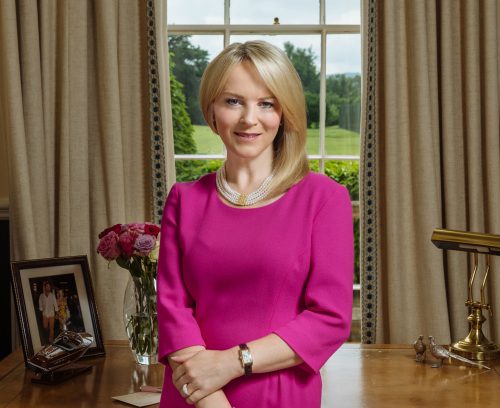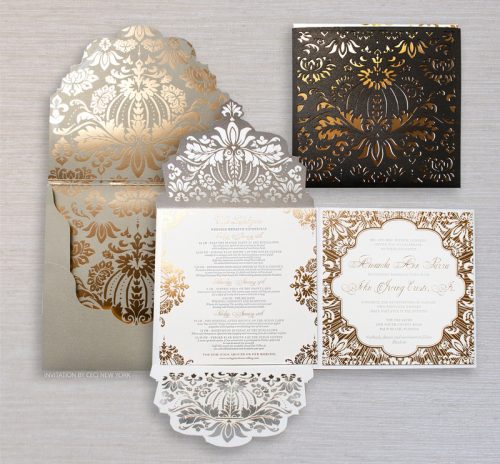I once met my friend James for dinner in NYC and found myself in quite the social pickle. There I was, living my life, happily zig-zagging my hands across my plate as I performed the repetitive act that apparently repulses just about every person in the UK. It goes something like this:
Cut food
Sit knife down
Switch fork to the other hand
Bring food to the mouth
Sit fork down
Chew
Repeat
I was having a grand old time when all of a sudden, James looked at me, exasperated and said “Stop. Just stop.” Confused, I asked what he needed me to stop doing. “Cut your food. Then simply bring your fork to your mouth. Stop doing that atrocious American zig-zag.”
I was floored. Not only was my friend being a bit of a jerk, he was highlighting one of my greatest insecurities: I could not do toppy-fork (when you use your knife to balance food on the back of your fork).
Now, before I go on, let me be clear; I am no animal. I don’t stab my meat holding the handle of my cutlery like a child, I don’t chew with my mouth open and I know my way around a salad fork. Still, eating in the UK has always caused me great anxiety. Because of the toppy fork issue, I have been crossing the pond and instantly going from well-mannered American to atrocious slob for the past 15 years.
James brought this all into light and I was unnerved. I met this issue head-on by picking up my lobster roll and eating it with my hands.
He was not amused.
Fast-forward to September 2016 when I moved to London for good and had the great fortune of meeting my boyfriend a month later*. He took me to a lovely bistro on our third date**. It was here that I watched him perform what could only be described as a cutlery ballet.

His fork maintained perfect balance as he wielded his knife like a well-bred warrior. After the third bite, I knew I had found my man. He was the perfect person to guide me through my table induction. I blurted out, “I want to learn how to do toppy fork, will you teach me?” “Toppy what?” He asked. “You know, the balancing the food on the top of your fork. I want to learn that.” After laughing hysterically, he smiled and started to show me how the brits piled and swiped their way to nourishment, never once gaining access to any one flavor as they mushed five different items onto the back of their forks in order to keep their peas steady.
Note: Peas are still not my forte. In fact, they once terrified me so much that I anxiously announced to his very sophisticated stepmother that I was allergic to them on our first Boxing Day lunch together as I was simply too terrified to attempt what felt like an impossible task. This was before I knew you were allowed to scoop them into the carriage of your fork with a knife. Oh, and I must also note that it is never fork and knife when speaking about cutlery and always knife and fork. This was brought to my attention while having lunch at The Hurlingham Club with my dear friend, Flavia, when she corrected me without so much as looking up from her plate.
So.
Many.
Rules.
So, dear readers, in order to help all of you avoid a total panic every time you hear a “how do you do?” or see a proper place setting- especially at a formal event such as a wedding- I’ve consulted Emma DuPont, founder of The Emma DuPont School of Etiquette.
Having personally taken Emma’s course (and come out calmer and more confident as a result), I can assure you she can upgrade anyone, even an American.
Though she’s worked with some of the most well-known companies, individuals and business leaders in the world, she’s hilarious, down-to-earth and truly lovely.
See our Q&A below.

In the US, it’s not uncommon for guests to give cash as weddings gifts, but I’ve had brides here tell me that would be considered poor form and even embarrassing to couples. What are the rules around gift giving in Britain?
Unless the bride and groom have specifically asked for cash, it would not be appropriate to give money. The exception to this rule would be if the giver was a close relative or a godparent; traditionally they would present a cheque to the happy couple, but even this has become rarer with the increase in popularity of wedding lists.
In the US, dress codes are made clear for both men and women, but I have noticed invitations in the UK often have no dress code or mention only morning dress or lounge suits. Will you give female guests some guidance?
Traditionally, no code was mentioned at all because all weddings were deemed as Morning Dress, however, times change and many weddings are now more relaxed, which actually makes it more challenging. Wider perimeters of choice mean greater opportunities for mistakes!
In the past, a lady accompanying a gentleman in morning dress ould always wear a hat and smart daywear that would preferably be worn with a jacket. If it is hot then the dress may be worn without the jacket but it should have a sleeve and not expose the shoulders. The alternative would be to cover the shoulders with a pashmina or bolero. The handbag should be a clutch and hosiery and court shoes with a small heel would be most appropriate. Daytime jewelry such as pearls would be best, and in the past, day gloves would be worn, but this is sadly rarely seen nowadays.
Lounge Suit Dress Code are slightly less formal than Morning Dress for a lady, in that no hat is required and certainly no day gloves! A day dress, skirt, and jacket, skirt and coat or trouser suit are all fine, and the style would be dependent on the location and season.
Any fashion faux-pas to avoid?
The first rule is to honor what has been asked of you on the invitation. The second rule is to dress appropriately for the time of year, the season and the venue.
The biggest mistakes are baring shoulders at a church ceremony, wearing evening materials such as satin and, my biggest bugbear, nightclub shoes. Ouch! Weddings can be extremely long days, often continuing straight into the evening celebrations, and hobbling around or even worse, carrying your shoes at the end of the day is not elegant!
What is your favorite wedding gift to present?
One of my favorite choices is dinner at a very nice restaurant for them to enjoy when they return from their honeymoon. It will give them something to look forward to once life returns to normality.
Now, a few questions for tricky guest situations: You’re sitting at a table with a full setting and you’re not entirely sure what to do with what. What do you do?
Watch other guests and take your guidance from them. Note I said guests, not one particular person, after all, they may get it wrong as well, and so it is advisable to hedge your bets. Remember the rule of working from the outside in with your flatware, and if something does go wrong I suggest a good dose of humor and then move swiftly on. Charm and charisma can carry you through very well in these scenarios.
What’s your best tip for charming small talk?
Try and remember that small talk is the route to the big talk, you can’t really get to the latter without the former, you can try but it is like shooting in the dark. Begin the conversation with a question relating to what you know you have in common, for example, the happy couple, the venue, the type of meal that is being served and how far they have traveled. This may sound simple, and it is; at this stage, it’s a fact-finding exercise to gather information about the person which you can use as a foundation for more interesting subjects.
Many couples follow the “no ring, no bring” rule here in the UK whereas in the US, not inviting a long-term partner of a guest would be seen as rude. What is the proper cut off?
There is no specific rule or cut off, it is often dependent on the size of the budget and the venue.
It is however deemed appropriate to extend the invitation to both parties if they are involved in a long-term relationship, engaged or married. If the relationship is in its early stages, along with the fact that the bride and bridegroom have not met the person, then the partner should not expect to be invited.

A number of brides have shared that they have had friends ask if they will be invited to weddings when it’s just not feasible to invite everyone they’d like to due to the wedding budget. What’s your best advice for dealing with questions like this one?
Well, it is rather rude of someone to ask if they are going to be invited to your wedding! However, if you’re unable to invite a close friend then it would be kind to pre-empt the situation and explain directly that the budget and/or venue are restricted and only family members are being invited.
It is also important to mention that you should only invite someone to your engagement party if they are being invited to the wedding, and a guest should never be invited to the ceremony but not the reception.
Your thoughts on cash bars?
Cash bars should not even be considered. Period. Postpone the wedding for another year or reduce the number of guests.
Finally, what do you do if the drinks got to you and you behaved badly?
The next day you should call those that you feel you may have offended and apologize. Most people know how alcohol and emotions can be a dangerous cocktail so will accept your apology, especially if you’ve had the courage to call them. Remember to extend that graciousness to others; after all, we’ve all been there!
* I am hoping this gets me a date.
** This was the only dinner date he’s ever suggested and it was only brought up when his friend, Watts, taunted him. Cue: Find me in the pub by 50 cent.




